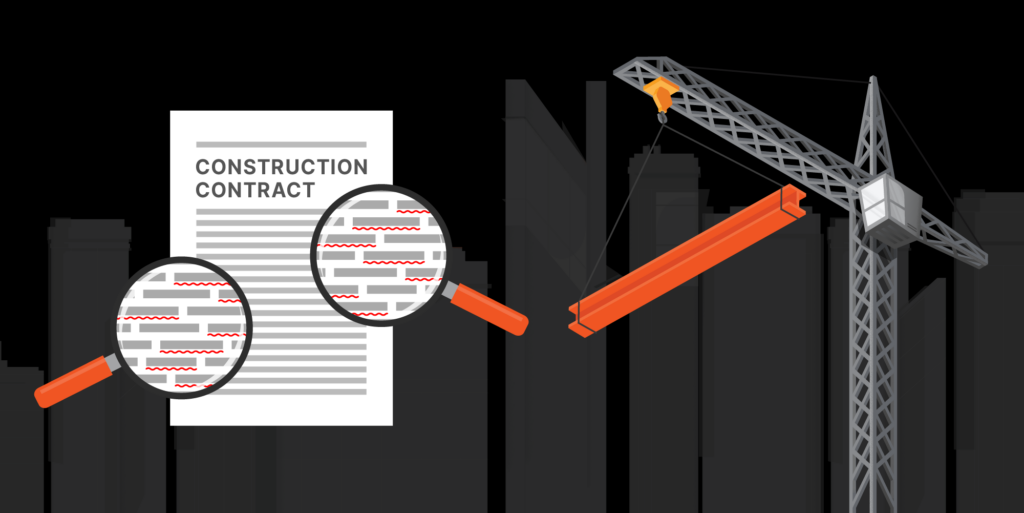— 5 min read
Key Differences Between Contractors & Subcontractors
Last Updated Aug 9, 2024
Last Updated Aug 9, 2024

Few owners and developers employ in-house construction teams. Instead, nearly all construction projects are outsourced to professionals, who work for the owner under a contract. In fact, most construction projects are made up of a number of smaller, separate contracts, each requiring trade contractors with varying expertise to complete. Almost all construction work is performed by independent contractors. But unlike many other industries, the lines between different types of independent contractors can be less clear. In this article, we'll explore the key differences between the types of independent contractors in construction.
Learn more: The main types of construction contracts
Table of contents
Independent contractors in construction
The term “independent contractor” applies to anyone hired to perform work or services under contract (i.e. not directly employed by the hiring party), while "subcontractor" refers to any person or company who doesn't have a direct contract with the owner.
"Independent contractor" is used in most industries to differentiate between an employee and an outside entity, and has legal implications on tax and insurance liability. The IRS defines "independent contractor" as an entity with a relationship where "the payer has the right to control or direct only the result of the work and not what will be done and how it will be done."
A construction contract typically defines the scope of work, specifications, and overall schedule for the project. But the owner typically doesn't control the specific days or hours that the contractor works, or the tools they use -- the contractor is in control of how the project is delivered. As a result, under US tax rules, most construction contractors are considered "independent contractors."
Other types of construction companies, like architects and engineering firms, also operate as independent contractors -- but the term "contractor" is generally used in construction to refer to the companies that manage or perform actual construction work. Because nearly all projects are built by independent contractors, rather than direct employees of the owner, in construction "independent contractors" are simply called "contractors."
Contractors are typically hired directly by a company or individual for a project. They usually have their own business and are self-employed. Independent contractors are charged with tasks like sourcing raw materials and estimating project costs, including labor, agreeing on project deadlines with the client, hiring necessary subcontractors and other tradespeople, and resolving any potential issues that could delay the project.
Stay updated on what’s happening in construction.
Subscribe to Blueprint, Procore’s free construction newsletter, to get content from industry experts delivered straight to your inbox.

Subcontractors in construction
Few construction projects are delivered entirely by a single contractor or their employees. Because of the highly complex nature of building work, the prime or general contractor typically outsources much of their scope of work to subcontractors who specialize in a particular trade.
Just like general contractors, subcontractors are independent contractors -- they are not an employee of the owner. They have the right to control their own operations -- in other words, how they get the work done.
Subcontractors most often specialize in a specific aspect of a project. Rather than being directly hired by the client, they’re called in by contractors to perform certain tasks, such as roofing and siding, electric work, plumbing, or tiling.
Generally, the term "contractor" is used to refer to any company doing actual construction work, including general contractors and subcontractors. But for clarity, most construction contracts use Contractor (with a capital "C") to refer to the party with a direct relationship with the owner, and Subcontractor to define the companies hired by the Contractor (or by any of the Contractor's Subcontractors).
Learn more: Types of subcontractors in construction
Because subcontractors are hired by another contractor, the owner typically has little control over their involvement in the project. Instead, the owner chooses a prime or general contractor based on their experience delivering a particular type of project -- trusting them to bring on qualified, experienced subcontractors to get the job done.
Independent contractor responsibility
Contractors and subcontractors work similarly in construction, both playing a role in a project’s completion using their own tools and equipment. Neither a Contractor or Subcontractor are employees of the companies they contract with, so their own respective insurance covers them on the job.
As independent contractors, each company is responsible for its own tax withholding, workers' compensation insurance, payroll, and other business activities. Most states require both subcontractors and general contractors to have their own insurance and contractor licensing in place before bidding on jobs.
Independent contractors are in essence hired to take charge of a construction project, ensuring the necessary materials and subcontractors are in place to ensure its timely completion. Part of the trust involved in hiring an independent contractor is knowing they will only subcontract out to skilled and dependable specialists, which is usually agreed upon in advance in contract language before work begins. Independent contractors are usually required to be bonded before the start of a project, while subcontractors are not held to the same requirement.
Project owners contract directly with independent contractors, who in turn, pay any subcontractors they hire to complete specific project tasks like HVAC work, hanging drywall, or any needed plumbing or electrical work. This can occasionally cause problems ensuring subcontractors are paid on time, as how quickly a sub is paid is directly dependent on how fast the owner pays the independent contractor. Sometimes on a particularly complex project, subcontractors will contract with subcontractors of their own for certain tasks, which can present some problems for owners around contract requirements, labor rules or regulations, scheduling, or quality and safety concerns.
Since independent contractors are the ones paid directly by the owner, it’s the owner’s responsibility to ensure requirements governing sub-subcontractors are clearly laid out in the contract signed at the project’s outset.
Was this article helpful?
Thank you for your submission.
100%
0%
You voted that this article was . Was this a mistake? If so, change your vote here.
Scroll less, learn more about construction.
Subscribe to The Blueprint, Procore’s construction newsletter, to get content from industry experts delivered straight to your inbox.
By clicking this button, you agree to our Privacy Notice and Terms of Service.
Categories:
Tags:
Written by
Hildy Medina
Hildy Medina is the Editor-in-Chief of Jobsite. In her former life, Hildy was a journalist writing for various publications, including Forbes, The San Diego-Union Tribune, and The Santa Barbara News-Press.
View profileExplore more helpful resources

Understanding Supplementary Conditions on Construction Contracts
No two construction projects are exactly alike — and the same goes for construction contracts. Even when using a standard contract form, owners and contractors sometimes use supplementary conditions to...

A Straightforward Guide to Construction Contract Review
Construction contracts are like the glue for the project team. They’re the ties that bind the working relationships and goals for the project, containing information about responsibilities, liabilities and processes...

Escalation Clauses in Construction Contracts: When and How They Apply
In construction contracts, an escalation clause allows for the escalation of a certain price for labor or materials to be used in a construction project. This type of clause is most...

Scope Gap: Addressing Ambiguous Project Requirements
To turn contract documents into an actual building, every construction project requires stakeholders to complete certain items of work. Ideally, the scope of work outlines those items and clarifies who’s...